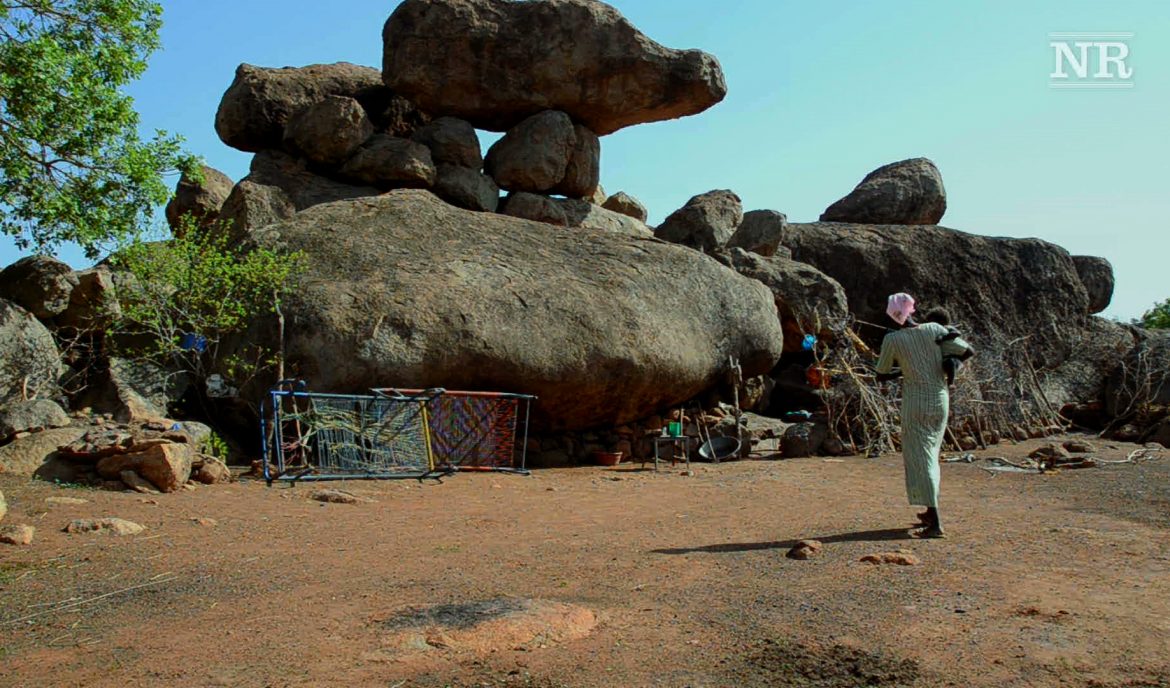Marriam Teia pointed to a bag of grain near the doorway of her home, a small inlet in the caves of the Nuba Mountains.
“This is the last sack for the kids,” she told Nuba Reports. When it runs out, she said, there will be nothing left. Marriam, along with an estimated 100,000 others, have fled their homes in the volatile border region of South Kordofan and sought shelter in the rocky folds of the nearby mountains.
As fighting between the Sudan People’s Liberation Army-North (SPLA-N) and the Sudan Armed Forces (SAF) increases, and the Sudan government continues scorched earth tactics across South Kordofan, citizens of the region are forced out of their lands. Abandoning farms, livestock and goods, their new home offers little: foul water, no crops, and diminishing hope. Our newest video, “A Hidden Hunger: Life in the Caves of the Nuba Mountains” exposes a population on the verge of starvation.
Eighty per cent of households in the Nuba Mountains survive on one meal per day, according to an evaluation by an independent NGO. That number is up from zero per cent just two years prior and malnourishment among children is soaring.
In September, Nuba Reports spoke to Dr. Raphael Veicht with German Emergency Doctors. He noted a spike in severely malnourished children arriving at this clinic in the Nuba Mountains. “I haven’t seen any food aid recently,” he said. “There’s no aid from anyone, from any UN agency or any foreign government.”
NGO’s working in the region say the humanitarian crisis is the direct result of broken promises from the Sudan government. The Tripartite Humanitarian Agreement, signed August 4th by the United Nations, African Union and League of Arab States, assured the release of food aid to South Kordofan. Months later, relief remains nonexistent.
Khartoum denies accusations it is withholding aid, but parties outside the government say otherwise. Amor Almagro, a spokesperson for the World Food Programme, told the Bureau of Investigative Journalism earlier this month that despite such claims, “access has not been granted for us to carry out an assessment and deliver much needed food assistance…”
Frequent bombing by the Sudan government continues to threaten civilians’ safety. More than 100 bombs fell in South Kordofan in October, according to Nuba Reports journalists. Attacks on the ground are also a concern for citizens as the SAF burns villages as part of the violent campaign against areas under Sudan People’s Liberation Movement-North (SPLM-N) control.
For many, the journey to Yida refugee camp in South Sudan is a daunting choice. With over 65,000 people inhabiting a camp intended for 15,000, living conditions are poor, food stocks are low and the long walk there is dangerous.
Life in the mountains is not a solution for displaced people, however. Cave life is unsustainable, especially without land to harvest or hope for food aid. Violence surrounds the mountains but their home villages are destroyed or in too dangerous a region to which to return.
Marriam Teia told Nuba Reports that not only does she have no way to get to Yida, but it is a place she’s never been before–far from her home in Tess, a village recently burned by the SAF. “I don’t know where to put my heart,” she said. “I’m in the middle. I want to go home.”
Additional interview footage for Marriam Teia provided by Chris Kelly





